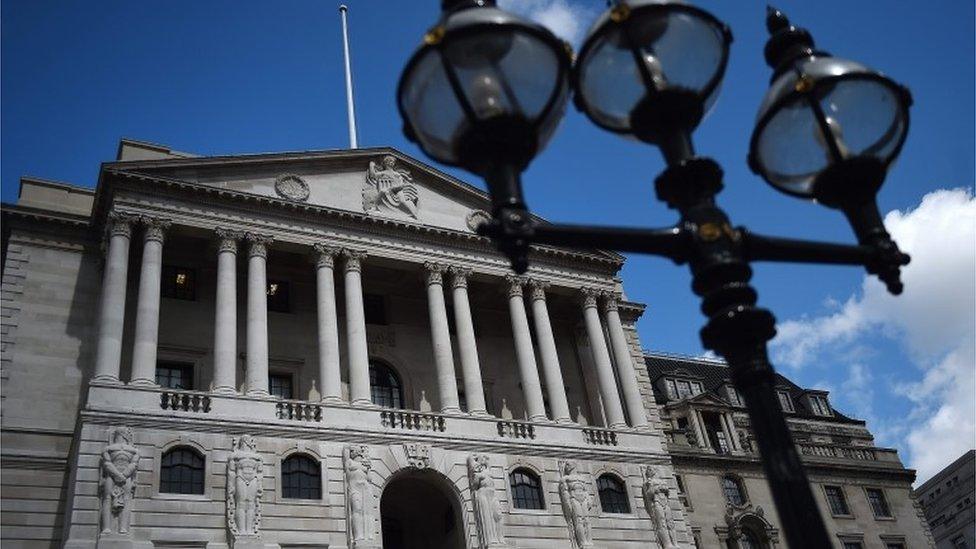Fuel prices push up UK inflation rate to 0.6%
- Published
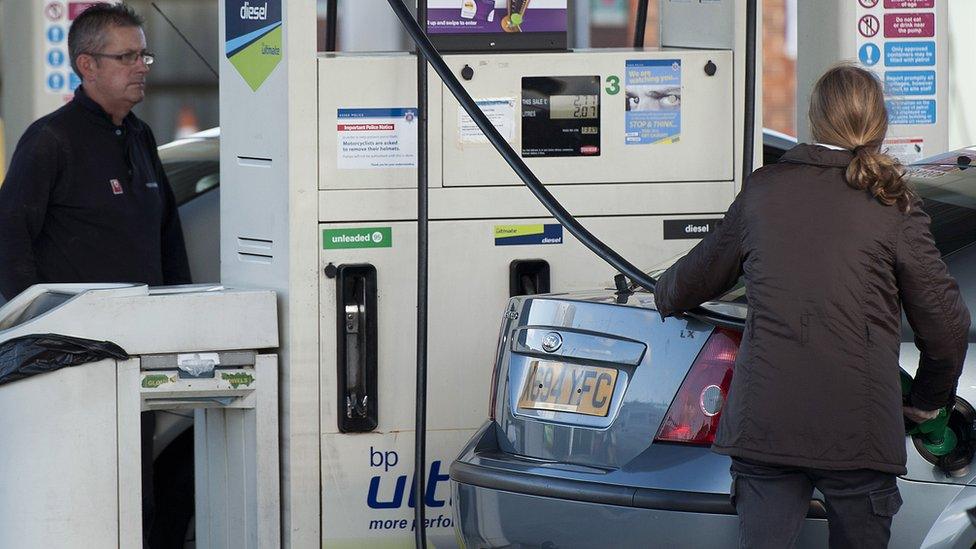
Rising fuel prices helped to push the UK's inflation rate higher last month, according to official figures.
The annual inflation rate as measured by the Consumer Prices Index (CPI) rose to 0.6% in July from 0.5% in June, the Office for National Statistics said., external
More expensive alcoholic drinks and hotel rooms also helped to increase the CPI rate, the ONS said.
The Retail Prices Index (RPI) measure of inflation rose to 1.9% in July from 1.6% in June.
July's RPI inflation rate sets the cap for how much regulated rail fares in England, Scotland and Wales can rise by next year.
Pricier imports
Separate figures, external from the ONS suggested that the fall in the value of the pound since the UK's referendum vote to leave the EU had increased the cost of imports for manufacturers.
Input prices faced by manufacturers rose 4.3% in the year to July, compared with a fall of 0.5% in the year to June.
The most dramatic rises came in the cost of imported food materials, which rose 10.2%, and the price of imported metals, which rose 12.4%.

In addition, the prices of finished goods leaving the factory gate were 0.3% higher than a year earlier, the first annual increase since June 2014.
"There is no obvious impact on today's consumer prices figures following the EU referendum result, though the Producer Prices Index (PPI) suggests the fall in the exchange rate is beginning to push up import price faced by manufacturers," said Mike Prestwood, head of prices at the ONS.
However, Samuel Tombs, chief UK economist at Pantheon Macroeconomics, said the fall in sterling was "entirely responsible" for the rise in CPI inflation to the highest rate since November 2014.
Against the dollar, the pound is some 13% below its level in the run-up to the referendum and 10% lower against the euro.
"Sterling's depreciation ensured that pump prices rose by 0.7% month-to-month even though dollar oil prices declined," he said.
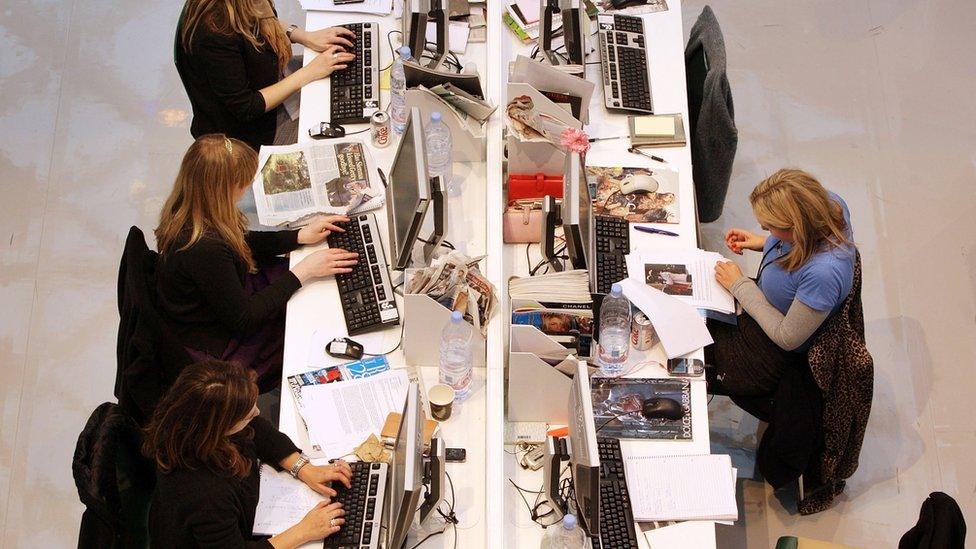
Inflation may lead to companies clamping down on workers pay
Workers' pay
"As a result, we continue to think that CPI inflation will hit 3% in the second half of 2017."
As prices for companies rise, the pressure to keep down costs may be bad for wages, according to Howard Archer, chief UK and european economist at IHS Global Insight.
He said: "Companies may well look to clamp down on workers' pay as they strive to save costs in a more difficult environment and as imported input prices are lifted by the weakened pound.
"Meanwhile, a likely softening labour market and reduced consumer confidence will dilute workers' ability and willingness to push for higher pay awards."
And even if inflation looks set to rise above the government's target of 2%, he believes the Bank of England is still likely to lower interest rates further to stimulate growth.
Mr Archer said he expected the Bank to take interest rates down to 0.10% in November from it current level of 0.25% and said: "It is notable that the MPC considered taking interest rates down to just above zero at their August meeting and that a majority of members thought there was a case to do so."
- Published9 August 2016
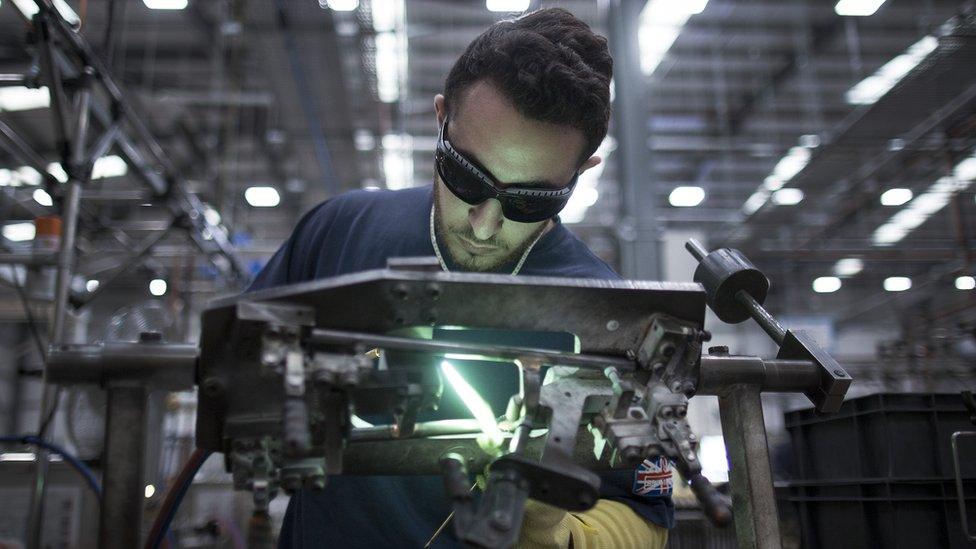
- Published16 August 2016
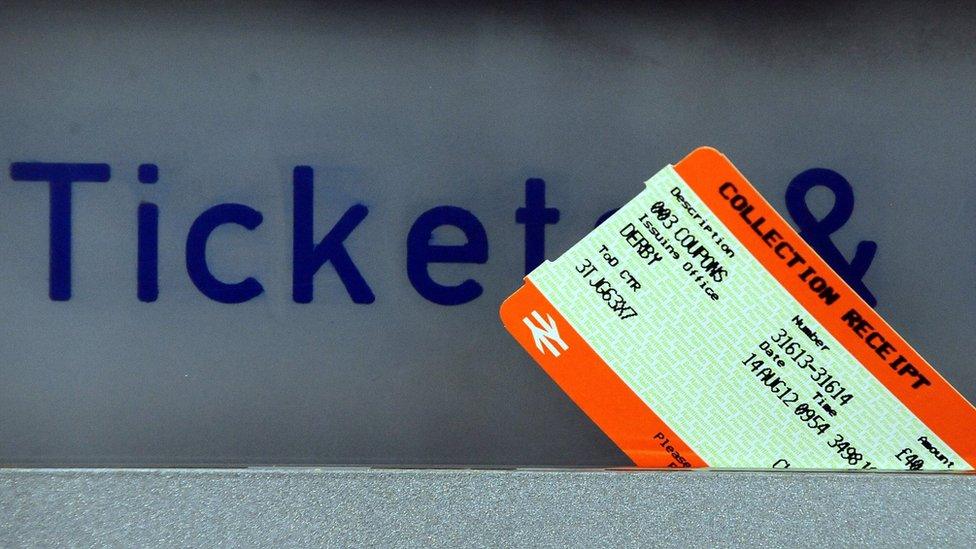
- Published9 August 2016

- Published4 August 2016
